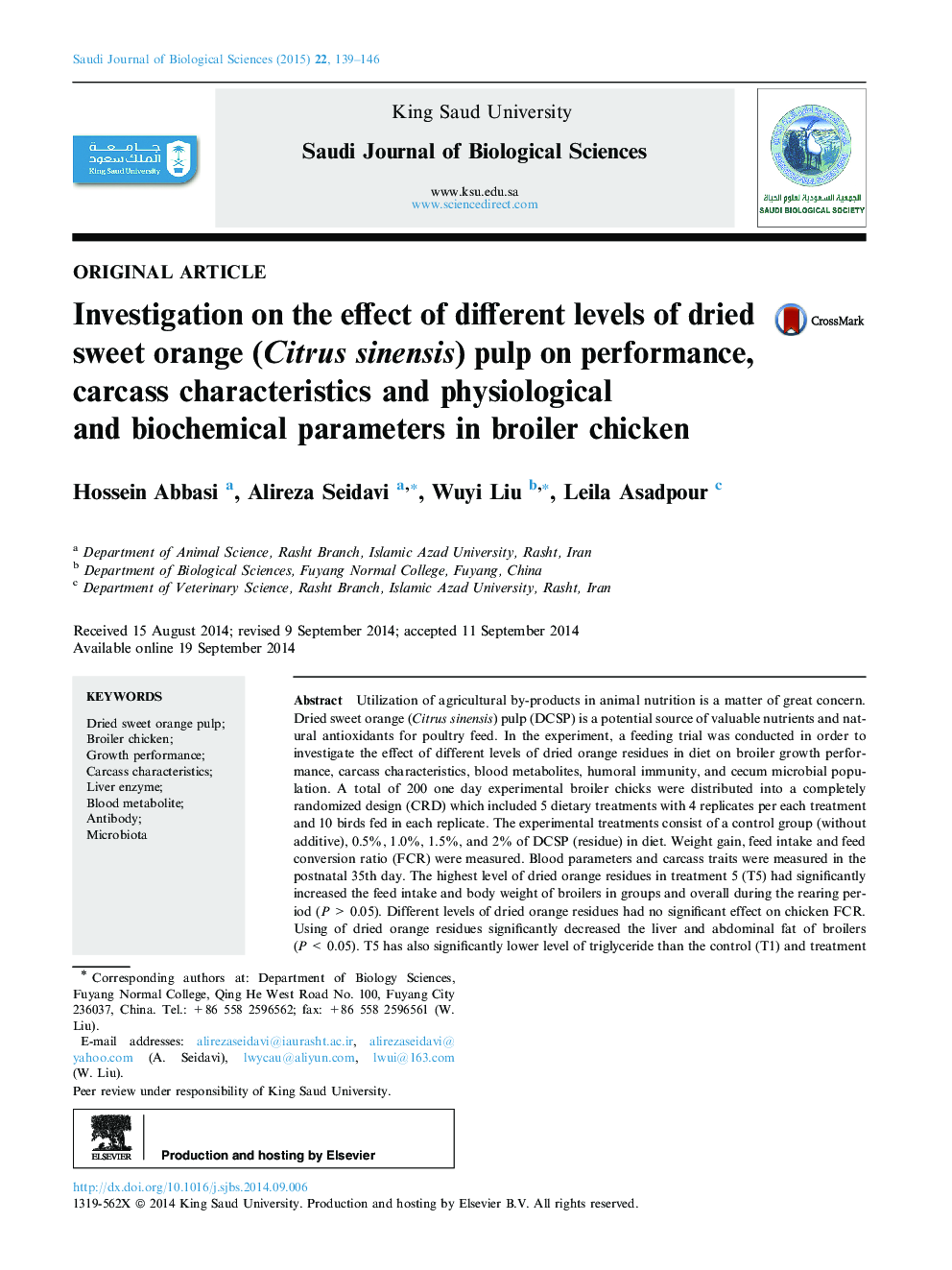| Article ID | Journal | Published Year | Pages | File Type |
|---|---|---|---|---|
| 4406419 | Saudi Journal of Biological Sciences | 2015 | 8 Pages |
Utilization of agricultural by-products in animal nutrition is a matter of great concern. Dried sweet orange (Citrus sinensis) pulp (DCSP) is a potential source of valuable nutrients and natural antioxidants for poultry feed. In the experiment, a feeding trial was conducted in order to investigate the effect of different levels of dried orange residues in diet on broiler growth performance, carcass characteristics, blood metabolites, humoral immunity, and cecum microbial population. A total of 200 one day experimental broiler chicks were distributed into a completely randomized design (CRD) which included 5 dietary treatments with 4 replicates per each treatment and 10 birds fed in each replicate. The experimental treatments consist of a control group (without additive), 0.5%, 1.0%, 1.5%, and 2% of DCSP (residue) in diet. Weight gain, feed intake and feed conversion ratio (FCR) were measured. Blood parameters and carcass traits were measured in the postnatal 35th day. The highest level of dried orange residues in treatment 5 (T5) had significantly increased the feed intake and body weight of broilers in groups and overall during the rearing period (P > 0.05). Different levels of dried orange residues had no significant effect on chicken FCR. Using of dried orange residues significantly decreased the liver and abdominal fat of broilers (P < 0.05). T5 has also significantly lower level of triglyceride than the control (T1) and treatment 2 (T2) (P < 0.05). In conclusion, the use of dried orange residues improved some performance (e.g. feed intake and body weight gain), decreased liver and abdominal fat and also serum triglyceride level in broiler chicken.
